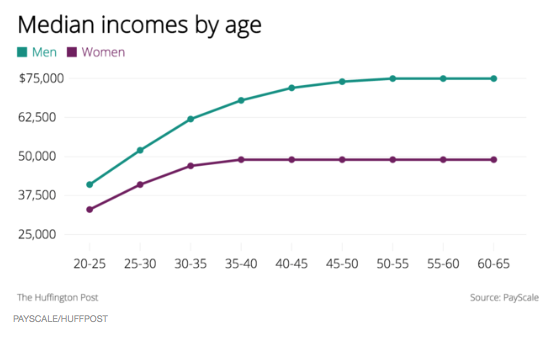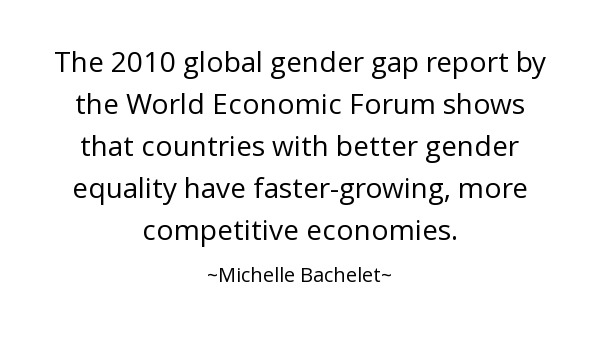This begs the question: How else does the pay gap affect women?
An academic study conducted by Columbia University's Mailman School of Public Health explored whether the pay gap has an effect on a woman's mental health.
Researchers analyzed information culled from 22,581 working adults between the ages of 30 and 65. Using an American Psychiatric Association "diagnostic interview", they determined the prevalence of either major depressive disorder (MDD) or generalized anxiety disorder (GAD) in each of the participants. Then, they paired men and women based on wage-related factors including occupation, industry and age.
In pairs where women made less money than they male counterparts, the odds of women experiencing MDD was twice as high as the men. When women made the same or more than men, MDD was "non-significant."
The instance of GAD was four times higher among women who made less money than men while the occurrence of generalized anxiety disorder was significantly minimized when they made as much or more than their male colleagues.
Based on this research, the pay gap contributes much more than financial distress. It also has a major impact on a woman's mental health and wellbeing.
As Katherine Keyes, one of the study's authors stated:
“While it is commonly believed that gender differences in depression and anxiety are biologically rooted, these results suggest that such differences are much more socially constructed than previously thought, indicating that gender disparities in psychiatric disorders are malleable and arise from unfair treatment.”
Article excerpt from January 2016 Huffington Post.


 RSS Feed
RSS Feed